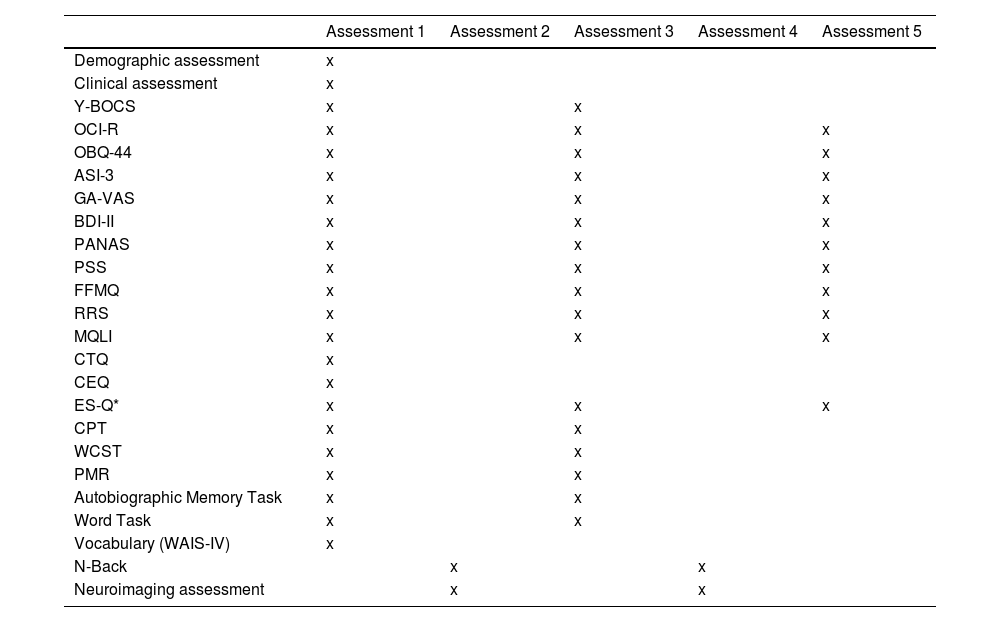Around 40–50% of patients with obsessive-compulsive disorder (OCD) suffer from obsessions and compulsions after receiving first-line treatments. Mindfulness-based cognitive therapy (MBCT) has been proposed as a reasonable augmentation strategy for OCD. MBCT trains to decentre from distressful thoughts and emotions by focusing on them voluntarily and with consciousness. This practice develops alternative ways to deal with obsessions, which could increase non-reactivity behaviours and, in turn, reduce compulsions. This study aims to investigate the efficacy of MBCT to improve OCD symptoms. Secondly, it pursues to investigate which socio-demographic, clinical, and neurobiological characteristics mediate or moderate the MBCT response; and identify potential biomarkers of positive/negative response.
MethodsThis study is a randomised clinical trial (RCT) of 60 OCD patients who do not respond to first-line treatments. Participants will be randomised to either an MBCT program or treatment as usual. The MBCT group will undergo 10 weekly sessions of 120min. Principal outcome: change in OCD severity symptoms using clinician and self-reported measures. Also, participants will undergo a comprehensive evaluation assessing comorbid clinical variables, neuropsychological functioning and thought content. Finally, a comprehensive neuroimaging protocol using structural and functional magnetic resonance imaging will be acquired in a 3T scanner. All data will be obtained at baseline and post-intervention.
DiscussionThis study will assess the efficacy of mindfulness in OCD patients who do not achieve clinical recovery after usual treatment. It is the first RCT in this subject examining clinical, neuropsychological and neuroimaging variables to examine the neural patterns associated with the MBCT response.
Clinical trials registration: NCT03128749.
Artículo
Comprando el artículo el PDF del mismo podrá ser descargado
Precio 19,34 €
Comprar ahora









